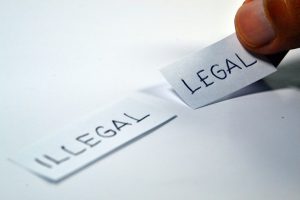Monmouth County Bankruptcy Law Office
 Frequently Asked Questions About Bankruptcy
Frequently Asked Questions About Bankruptcy
Tomes Law Firm, PC has been a legal resource for the people of New Jersey for over 30 years regarding bankruptcy matters. We have helped people get out from under the sea of debt and begin to rebuild their financial lives. If you are considering bankruptcy, you probably have a number of questions. We can help explain why bankruptcy may be your best legal option if your circumstances warrant it. We believe in providing our clients with support and the information they need to participate in these critical decisions about their financial futures. Below are some of the most frequently asked questions about bankruptcy. Find out how these questions and answers apply to your situation by meeting with one of our attorneys.
What are some signs that it is time to consider talking to a bankruptcy laywer?
-
- You are struggling to make rent or mortgage payments
-
- Stress over debt is having a negative impact on your quality of life such as not sleeping, being anxious and depressed, or fighting with everyone
- You are afraid to get your mail because there will be yet another debt collector letter or overdue bill
- You are afraid to answer the phone because you have said the check is in the mail too many times
-
- Your mental or physical health is suffering due to financial strain
-
- You’re making faulty decisions or behave in ways inconsistent with your values
- You are shuffling credit cards and transferring balances between accounts
Will my lifestyle change?
Your days of being harassed by creditors will be over. Many of our clients experience an almost immediate sense of relief after talking to us about their bankruptcy options. Once you are on a manageable budget, you will be able to pay essential bills, such as mortgage payments, car payments, phone bills, insurance payments and more.
Will my employer find out I have filed bankruptcy?
Generally, employers do not find out if an employee has filed bankruptcy. However, in some cases, it is possible that your employer will find out. For example, if your wages are being garnished, your employer will find out when he or she is told to stop the garnishment.
Can I keep my house and car?
Many people who want to keep their homes and cars are able to do so when they file bankruptcy. Tomes Law Firm, PC has successfully helped many homeowners save their homes from foreclosure and cars from repossession.
Can I buy a home after bankruptcy?
Once you have reestablished good credit after filing bankruptcy, you will be able to qualify for a mortgage. Because bankruptcy will impact your credit for 10 years, the process takes time but it is still possible.
What does it mean when the courts grant an “automatic stay”?
An automatic stay is a federal law that simply declares all collection efforts must stop the second a bankruptcy case is filed. A creditor trying to collect has to go to the bankruptcy court to try and collect. Creditors are not allowed to threaten a lawsuit, make a phone call, write a nasty note or make any attempt to collect their debt. All harassment should stop because creditors and collection agencies know they will be in violation of the law if they don’t. Of course, if the harassment continues, Tomes Law Firm, PC will take legal action on your behalf.
Does bankruptcy stop wage garnishments and levies?
Yes. The automatic stay also stops wage garnishments and levies. All of your creditors will be notified that they can no longer garnish your wages or impose levies of any kind.
What are the differences between Chapter 7 and Chapter 13 bankruptcy?
Chapter 7 is debt liquidation. Chapter 13 is a repayment plan. Each has their merits and it is important to explore your options with our attorneys.
Will my credit be ruined?
The truth is, if you are having financial difficulties, your credit score is probably already low. By filing bankruptcy and getting a fresh start, you are given the opportunity to get back on track with your finances and start rebuilding your credit score. Bankruptcy will affect your score for 10 years.
What does it mean when my debt is “discharged?”
It means that you are no longer legally obligated to pay the debts discharged by your bankruptcy filing. They must be listed on your credit report as discharged and may not be updated or altered. Discharge is the final event in a bankruptcy case.
What is the Financial Management Course I must take?
The financial management course required under Chapter 7 and Chapter 13 can be conducted by phone or through the Internet (online). Your attorney will help you identify approved vendors.
What is a 341(a) Meeting?
The 341(a) meeting occurs after you file for bankruptcy. You and your representation, creditors, and the trustee will meet to discuss your financial situation. The trustee will establish a clear picture of the situation and the creditors, through limited questioning, will try and collect information to best collect their debt, including constructing a valid objection that would satisfy the court.
Contact our Freehold, NJ bankruptcy attorney for a free consultation
Tomes Law Firm, PC has been a legal resource for the people of Monmouth County and all of New Jersey for many years. We understand the tough times you are enduring and work to ensure that you are prepared for the future and able to make educated decisions for yourself with our legal guidance. If you need compassionate and effective legal support, contact our firm for a consultation today.
